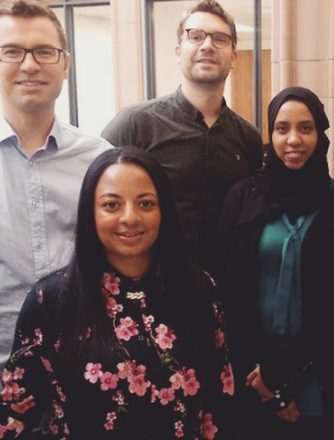
The Background
For almost 100 years, RoSPA has been working to change both legislation and attitudes surrounding accidents. From the compulsory wearing of seatbelts and the campaign to stop drink driving, RoSPA has been instrumental in preventing millions of deaths and serious injuries.
A registered charity, RoSPA carry out varied activities: campaigning, research, influencing legislation, informing and educating, auditing and providing expert consultancy to businesses – with the aim of being the leading advocates for the wellbeing of families everywhere.
The Challenge
RoSPA had decided to replace their legacy CRM System with lntegraNG and had started to undertake the project themselves. However, several problems had emerged relating the new business processes and data migration, which raised concerns as to whether lntegraNG was the right solution for them. It was decided to look for independent advice and Mast were asked to review the project and recommend a way forward.
Darren Edwards, Head of IT at RoSPA, explains:
“Bringing Mast into the project totally changed our approach. They helped us define a new logical data model, which helped resolve the issues with our business processes.”
“We implemented a structured configuration control process, which incorporated management and change control and adopted their recommended data mapping and migration procedures. This allowed us to monitor the data migration progress and control the scope of the project.”
“Mast also helped us setup our development, testing, training and live environments, which were key to the successful control, testing and management of the project.”
The Approach
Mast helped RoSPA in 3 main areas during the project:
1. Configuration of lntegraNG
To control the project scope, Mast identified the business critical processes with RoSPA and only focused on delivering those in the first phase. This was to ensure the costs and timelines were controlled and the benefits of moving to the new system could be realised as soon as possible. Mast worked closely with each department to understand their core business processes and configured lntegraNG to support their needs, as well as suggesting new ways of working if the current processes could be improved and best practice incorporated.
2. Data Migration
Alongside the configuration of lntegraNG, Mast also designed, developed and ran the data migration to ensure only clean and current data was migrated to the new lntegraNG system. Again to control the project scope only data needed to support the business processes was migrated; where required this data was cleaned and filtered so only current and accurate information was migrated, this was critical to the success of the project.
3. Training
Mast realised during the configuration stages that the confidence of the users was very low and there was a resistance to change. Having raised their concerns on the potential impact to the project with the RoSPA Project Manager, Mast outlined several ways of addressing the problem. Mast, with the help of their training specialist ln2itive Learning, designed a comprehensive training programme that was not only designed to train the users on the new procedures, but build their confidence and understanding of why the change was needed.
The Results
RoSPA successfully went live with lntegraNG in April 2016. Darren describes the impact Mast have made:
“We completely changed our approach, our structure, the data model, the data migration, and instructed Mast to rewrite the financial interface. With Mast we implemented lntegraNG in 7 months, which was half the time we had originally planned and only used 25% of our implementation budget!”
“We’re very pleased with Mast’s services. Not only did they help set up the system with us, they were also able to provide a sounding board to enable us to make our own decisions.”



